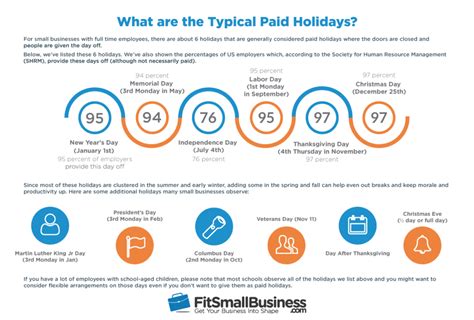Holiday Pay: Exploring Extra Compensation

As an employee, it’s important to understand your rights and entitlements when it comes to holiday pay. In this post, we’ll explore what holiday pay is, how it’s calculated, and what your options are if you feel you’re not receiving the correct amount. We’ll also cover some frequently asked questions on the topic.
What is Holiday Pay?
Holiday pay is an additional compensation that employees receive for taking time off work for vacation, public holidays, or other reasons. It is designed to provide financial support for employees who need to take time off work, while also ensuring that they don’t suffer financially as a result.
How is Holiday Pay Calculated?
The calculation of holiday pay can vary depending on your employer and your employment contract. Generally, it is calculated based on your average earnings over a specified period of time, such as the previous 12 weeks or the previous year.
However, there are some factors that can affect your holiday pay calculation, such as overtime pay, bonuses, and commission. These may need to be included in your holiday pay calculation to ensure that you receive the correct amount.
What Happens if I Don’t Receive the Correct Amount of Holiday Pay?
If you believe that you have not received the correct amount of holiday pay, you should speak to your employer in the first instance. You may be able to resolve the issue informally by discussing it with your employer and coming to an agreement.
If this is not possible, you may need to take further action. You may be able to make a claim to an employment tribunal, or seek advice from a trade union or legal representative.
FAQs
What is the Statutory Minimum Holiday Entitlement?
The statutory minimum holiday entitlement is 28 days per year for a full-time employee. This includes bank holidays, so you may need to take this into account when calculating your holiday entitlement.
Can my Employer Refuse to Pay Me Holiday Pay?
No, your employer cannot refuse to pay you holiday pay if you are entitled to it. If you believe that your employer is withholding your holiday pay, you may need to seek advice from a trade union or legal representative.
What Happens if I Leave my Job?
If you leave your job, you may be entitled to receive a payment for any unused holiday entitlement. This will depend on your employment contract and your employer’s policies.
Can I Carry Over my Annual Leave?
In some cases, you may be able to carry over your annual leave if you have not been able to take it in the current year. However, this will depend on your employment contract and your employer’s policies. You should check your contract or speak to your employer to find out what your options are.
Can I Be Paid in Lieu of Taking Annual Leave?
In some circumstances, you may be able to agree with your employer to be paid in lieu of taking annual leave. However, this will depend on your employment contract and your employer’s policies. You should check your contract or speak to your employer to find out what your options are.
Conclusion
Holiday pay is an important entitlement for employees, and it’s important to understand your rights and entitlements when it comes to taking time off work. If you believe that you are not receiving the correct amount of holiday pay, you should speak to your employer in the first instance. If this is not possible, you may need to seek advice from a trade union or legal representative.
